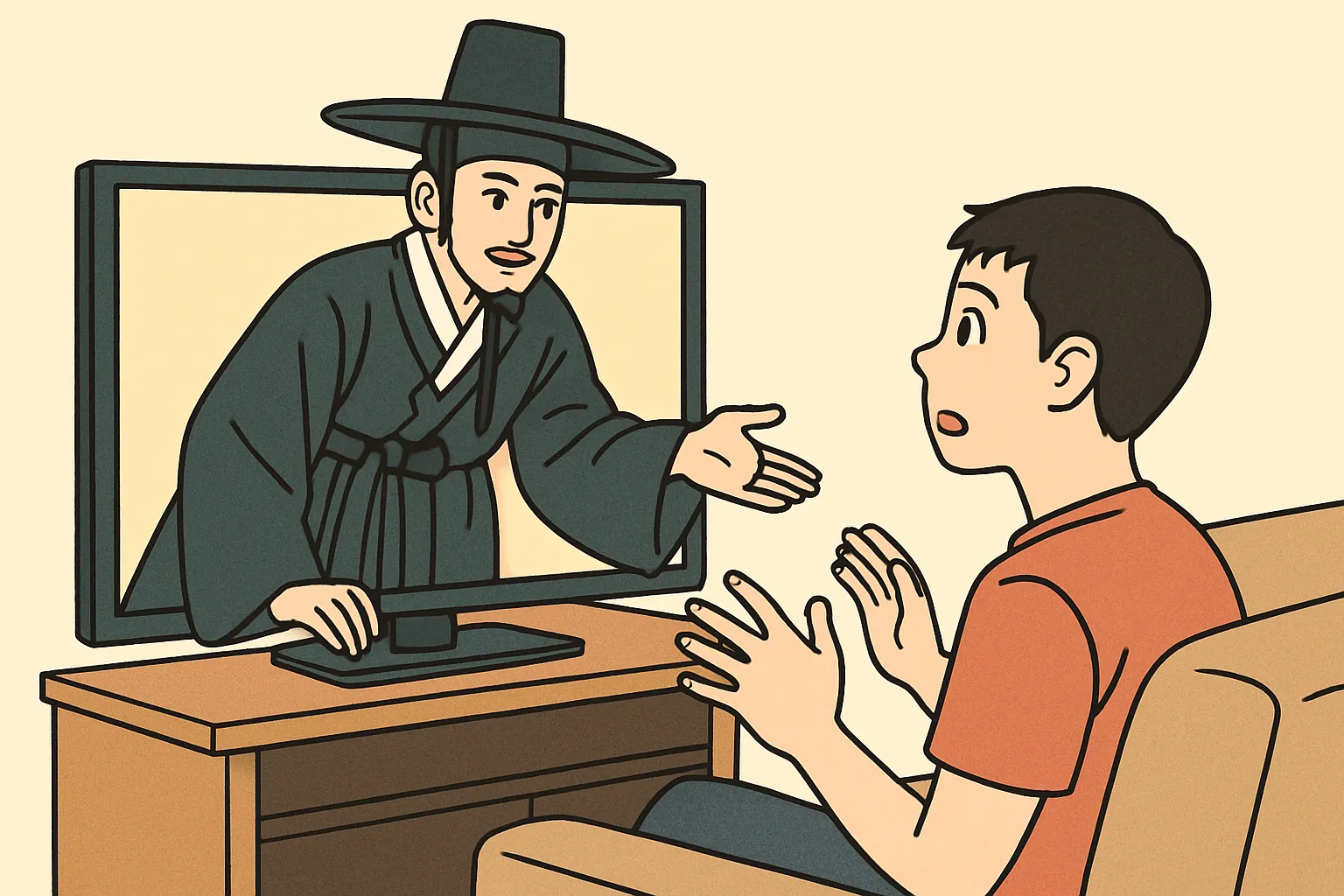Volunteer Like a K-Pop Star in Korea!
Hello! Welcome to Maeil Hangul, where we upgrade your Korean skills every day!
Have you ever wanted to do something meaningful while in Korea? Today, we’re going to learn how to talk about your motivation for volunteering! This is super useful whether you’re applying for a volunteer program, or just telling your Korean friends about your passions.
And guess what? Volunteering is a huge trend in Korea right now, especially among K-Pop fans! To show support for their favorite idols, fans often organize group volunteering events. It’s called “Meaning Out” (미닝아웃), where you express your values through your actions. So, let’s learn how to talk about it like a pro!
Key Expressions to Share Your Heart
Here are three essential expressions you need to explain why you want to volunteer.
1. -고 싶어서 (-go sipeoseo)
- Pronunciation [Romanized]: [-go shee-puh-saw]
- English Meaning: Because I want to…
- Detailed Explanation: This is a fantastic grammar pattern to express your reason or motivation for doing something. You attach it to a verb stem. It’s a very natural way to explain your desires. For example, “먹다” (meokda – to eat) becomes “먹고 싶어서” (meokgo sipeoseo – because I want to eat).
2. 도움이 되다 (doum-i doeda)
- Pronunciation [Romanized]: [do-oom-ee dwe-da]
- English Meaning: To be helpful / to be of help
- Detailed Explanation: This is the perfect phrase to express your intention to contribute. ‘도움’ (doum) means ‘help’, and ‘되다’ (doeda) means ‘to become’. So, you literally want to “become a help” to someone or something. It’s a humble and positive expression.
3. 보람을 느끼다 (boram-eul neukkida)
- Pronunciation [Romanized]: [bo-ram-eul neu-kkee-da]
- English Meaning: To feel a sense of satisfaction / to feel rewarded
- Detailed Explanation: ‘보람’ (boram) is a wonderful Korean word that means the feeling of pride, satisfaction, and fulfillment you get from doing something worthwhile. When you volunteer, you often feel this! You can use this phrase to explain the positive feelings you get from helping others.
Example Conversation
Let’s see how these expressions are used in a real conversation!
A: 민지 씨, 주말에 뭐 해요?
(Minji-ssi, jumal-e mwo haeyo?)
Minji, what are you doing this weekend?
B: 유기견 보호소에서 자원봉사할 거예요.
(Yugigyeon boheoso-eseo jawonbongsa-hal geo-yeyo.)
I’m going to volunteer at an animal shelter for abandoned dogs.
A: 정말요? 왜 자원봉사를 하고 싶어요?
(Jeongmallyo? Wae jawonbongsa-reul hago sipeoyo?)
Really? Why do you want to volunteer?
B: 동물을 좋아하고, 작은 도움이라도 되고 싶어서요. 이렇게 봉사하면 정말 보람을 느껴요.
(Dongmul-eul joahago, jageun doum-irado doego sipeoseoyo. Ireoke bongsa-hamyeon jeongmal boram-eul neukkyeoyo.)
Because I like animals and I want to be of even a little help. When I volunteer like this, I really feel a sense of satisfaction.
Culture Tip & Trend Analysis
As we mentioned, “Meaning Out” is a big deal in Korea. When a K-Pop group like SEVENTEEN or Stray Kids has a birthday or anniversary, their fans (CARATs and STAYs!) don’t just buy gifts. They often pool money to donate to charities or organize volunteer events in the group’s name.
They might clean up a park, help at a soup kitchen, or volunteer at an animal shelter. On social media, they’ll post pictures with hashtags like #BTSARMYVolunteer or #GoodInfluenceWithNCT.
So, if you say “도움이 되고 싶어서 자원봉사를 해요” (I volunteer because I want to be helpful), you are not just practicing Korean; you are participating in a beautiful cultural trend of spreading positive influence, just like a true K-Pop fan!
Let’s Practice!
Time to check what you’ve learned. You can do it!
1. Fill in the blank:
You want to help children. How do you say, “I volunteer because I want to help children”?
아이들을 ( ) 자원봉사를 해요.
(Hint: Use the verb ‘돕다’ (dopda – to help) + our first key expression!)
2. Make a sentence:
Imagine you volunteered and felt really good about it. How would you express that feeling using our third key expression?
Great job today! You’ve learned some incredibly useful and heartwarming expressions.
Now, it’s your turn! Try leaving a comment below using one of today’s phrases. For example, “저는 한국어를 배우고 싶어서 매일한글을 봐요!” (I watch Maeil Hangul because I want to learn Korean!)






